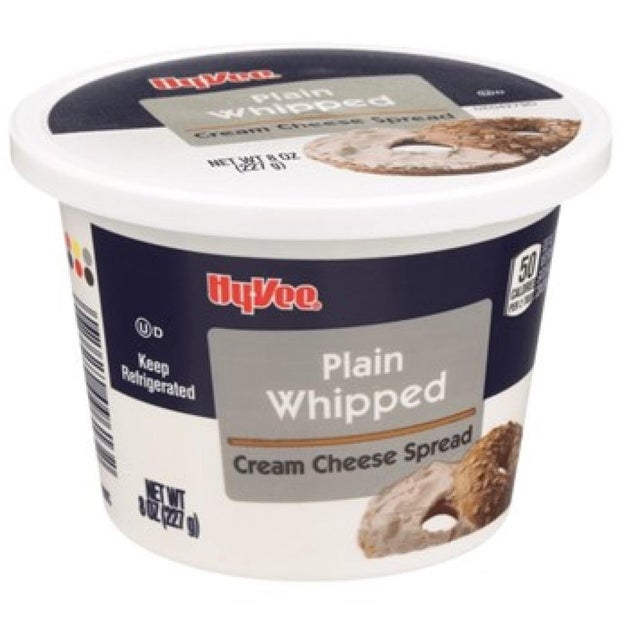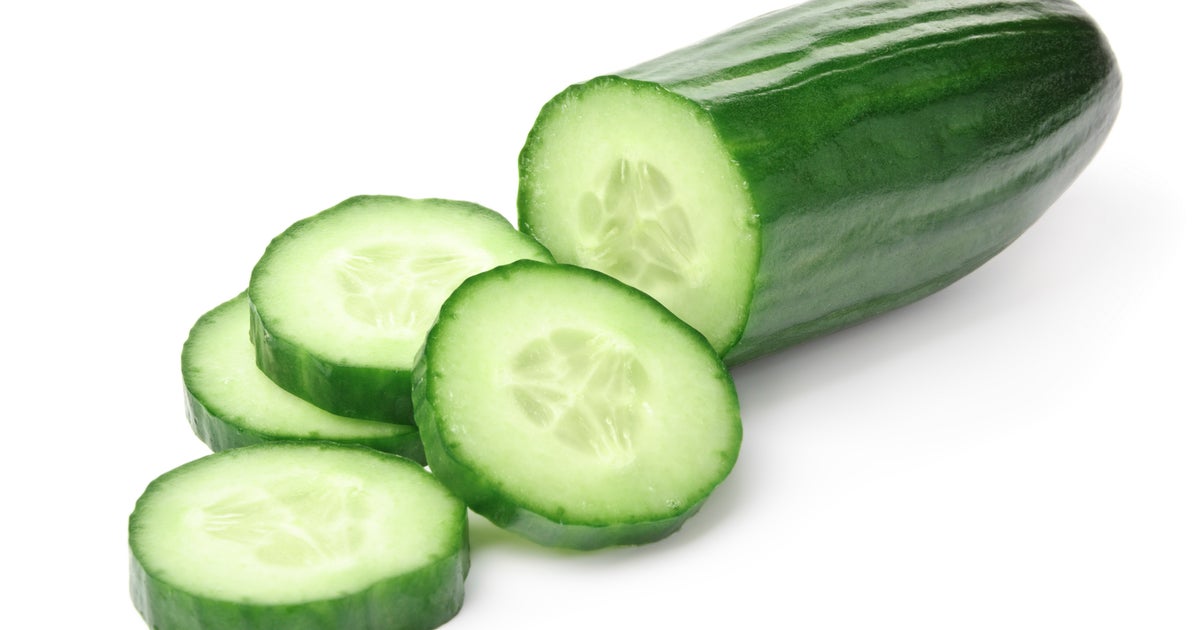CBS News
Hy-Vee and Schnucks recall cream cheese spreads due to salmonella risk

Two regional grocers — Hy-Vee and Schnuck Markets — are separately recalling a variety of cream cheese spreads sold across the Midwest because the products may be contaminated with salmonella.
Hy-Vee is recalling two varieties of Hy-Vee Cream Cheese Spread, as well as bulk-packaged Cookies & Cream Mix, the West Des Moines, Iowa-based retailer said Monday in a statement posted by the Food and Drug Administration.
Sold under Hy-Vee’s private label and bulk packaging programs, the recalled products were sold at more than 280 retail stores in eight Midwestern states: Illinois, Iowa, Kansas, Minnesota, Missouri, Nebraska, South Dakota and Wisconsin.
Salmonella can cause serious and sometimes fatal infections in the young, frail or elderly. Symptoms can include fever, diarrhea, nausea, vomiting and abdominal pain.
Food and Drug Administration
People who purchased the recalled products should throw them out or return for a refund, Hy-Vee said.
Separately, St. Louis-based Schnuck Markets is recalling three cheese spreads for possible salmonella contamination:
- Schnucks Whip Cream Spread, UPC 4131858005, with a best-by-date of August 8, 2024.
- Schnucks Strawberry Spread, UPC 4131858007, with a best-by-date of Sept. 8, 2024.
- Schnucks Cream Cheese Spread, UPC 4131858023, with a best-by-date of Oct. 8, 2024.
The recalled products should be returned for a refund or exchange, according to the retailer, which operates 115 stores in four states, including Illinois, Indiana, Missouri and Wisconsin.
Food and Drug Administration
Hy-Vee confirmed the company and Schnucks used the same cream cheese supplier, which a spokesperson identified as Schreiber Foods of Green Bay, Wis. Hornbacher’s, a West Coast chain, is also recalling cheese supplied by Schreiber.
Schreiber did not immediately respond to a request for comment.
CBS News
CEO shooting suspect Luigi Mangione arrives in New York after waiving extradition in Pennsylvania

Watch CBS News
Be the first to know
Get browser notifications for breaking news, live events, and exclusive reporting.
CBS News
“Sleepmaxxing” trend has young adults optimizing their sleep. Experts share some do’s and don’ts.

How to get an ideal night of sleep has been trending on social media. It’s called sleep optimization, or “sleepmaxxing,” and it’s particularly popular among younger Americans.
From using sleep trackers to sleeping with mouth tape, social media users are sharing tips online for what they do to catch more Z’s — and millions of people are paying attention.
Kamila Charles, a college senior in Florida, is among the many young adults who are now prioritizing their sleep routine.
“Magnesium, I do my skin care, I put my hair in rollers,” she said of her nightly rituals. “I’m trying to figure out what works for me because it is hard.”
Another student, Craig James, told CBS News he makes sure his room is dark, quiet and cold for optimal sleep. “No television on, no nothing,” he said. Many sleep experts echo that advice.
One recent analysis found members of Gen-Z spend more time sleeping than any other generation. That same survey showed they also spent more time exercising and prioritizing self-care than others.
“They just want to make the quality better, which is a good thing,” Dr. Rafael Pelayo, a clinical professor at Stanford University’s Sleep Medicine division, told CBS News. “Even though they may be considered good sleepers overall, they want to make their sleep even better.”
A recent Gallup survey found a majority of Americans — 57% — said they would feel better if they got more sleep.
The American Academy of Sleep Medicine recommends 7 to 8 hours of sleep per night, though it depends on age and other factors.
Middle schoolers should get about 9 to 12 hours a night, high schoolers about 8 to 10 hours, and adults more than 7 hours, Dr. Nidhi Kumar recently told CBS News New York.
“How many high schoolers are really sleeping that much?” Kumar said. “We are a country that is chronically sleep deprived.”
Sleep scientist Vanessa Hill recently told CBS News the sleepmaxxing trend may be beneficial because it gets people thinking about their sleep.
“So I think overall, it’s good,” she said, but warned, “sometimes when people can be too perfectionistic about their sleep, it can backfire.”
Risks of the sleepmaxxing trend
Despite the wellness intentions, experts say some aspects of this trend could do more harm than good.
“A lot of the things people do are not necessarily evidence-based,” Pelayo said. He also warns against obsessing over smartphone sleep trackers.
Kumar agrees, saying the problem with tracking your sleep is it can become obsessive.
“People can actually start dealing with an anxiety about trying to get to sleep,” she said.
She also says people should avoid mouth taping, a practice many have seen on social media.
“I’m going to say a hard no to mouth taping. It can actually be quite dangerous. It can increase snoring. It can cause anxiety, suffocation. It can cause a reduction in oxygen levels in certain susceptible individuals,” she said.
Kumar advises against the many pills and potions being promoted online, but says two supplements can be useful.
“Certain forms of magnesium, magnesium threonate, crosses the blood brain barrier (and) can help with sleep,” she said. “And if you’re dealing with jet lag, melatonin can be helpful. Other than these two supplements, nothing else has really been shown to work.”
Benefits of better sleep
Sleepmaxxing is helping to repopularize certain aspects of good sleep hygiene that everyone should try to embrace, Hill said.
“Things like try not to use your devices for half an hour or so before bed. Try to stick to a consistent bedtime. Try to have a relaxing wind-down routine. All of these things can set us up for a good night’s sleep,” she said.
Improving sleep is a positive step for overall health.
Kumar said quality sleep can lead to fewer sick days because it boosts your immune system. It can also help you maintain better weight control and reduce your risk of other serious conditions.
“Lower rates of heart attack, stroke, diabetes and high blood pressure; better mood, better attention, less stress, less anxiety,” she said.
If you are having trouble with your sleep, it’s best to consult your doctor.
“TikTok is not the answer when you really do have a problem, and there are a lot of sleep problems out there,” Hill said.
CBS News
What happened inside the courtroom as Luigi Mangione waived extradition

Watch CBS News
Be the first to know
Get browser notifications for breaking news, live events, and exclusive reporting.








